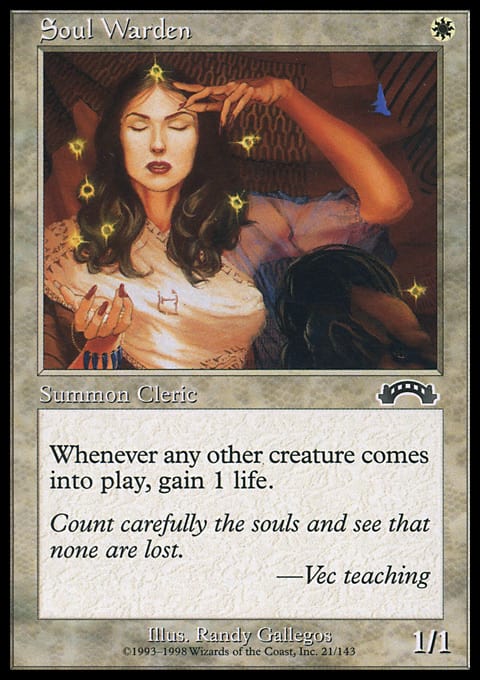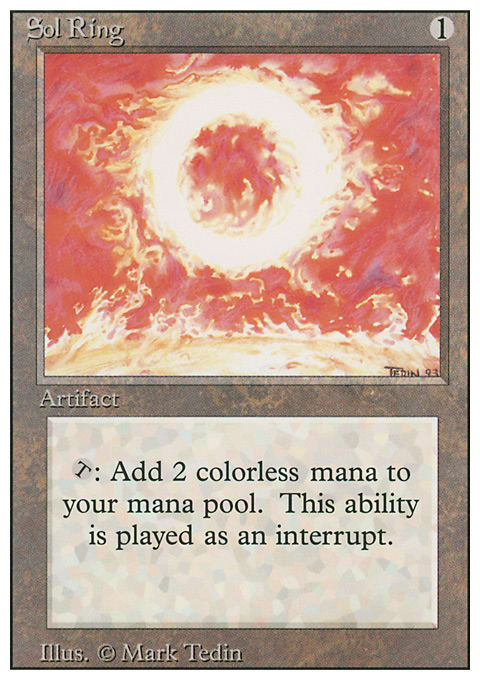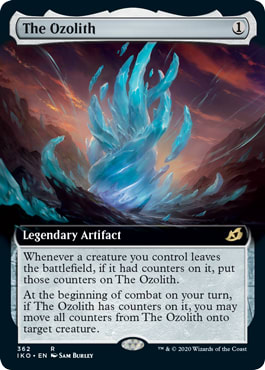Magic is a game. Games are supposed to be fun. Therefore, playing Magic is supposed to be fun.
Right now, you're rolling your eyes and saying, "Well duh you moron." And you're not wrong. I am a moron.
But... hear me out.
Think back to all the games of Commander you've played, with your regular playgroup(s) or with strangers. Now think about how many times you played Commander and didn't particularly have fun.
Yeah. It happens. A lot. Far more often than it should.
I'm not claiming to have a magic bullet for that. This is not a "try this one weird trick" situation. Of all the words we commonly use every day, few are more nuanced than "fun". What's fun to me isn't necessarily fun to you, and so on down the line for every single person on this planet.
Nowhere is that more true than in a format so diverse and filled with potential as Commander. So how can we do our best to make sure that we have fun when we sit down to play - and to make sure that our opponents have fun, too?
I'm so glad you asked.
Good Fences Make Good Neighbors
My favorite television show of all time - more than Star Trek or Power Rangers or Survivor, which is saying something, is The West Wing. In one episode, a character attends a seminar by a quacky self-help guru who quotes and misinterprets a famous line from a Robert Frost poem: "Good fences make good neighbors." The guru claimed it meant we needed to put up walls to respect each other's space, but Frost was trying to convey the opposite - that separating ourselves from one another is the worst thing we can do.
A game of Commander is a communal experience. It is not now nor has it ever been meant to be four individuals doing four different things at the same table. What I do affects the other three players and what they do affects me. We're all in this together.
But as I discussed last week, even though the format seems to be on a gradual but inexorable path toward increased competitiveness, it is still a social format and the games remain social, communal experiences. That requires us to fight our instincts a bit.
When we sit down to play with a new deck, or play with a new group of people for the first time, it's tempting to be coy and vague about the deck, its contents and win conditions or our strategy for winning with it. We'll tell ourselves it's because we want to preserve the surprise, but it's our base competitive instinct kicking in - we don't want to give our opponents more information than necessary.
But you know what's super unfun? Realizing a few turns into the game that, for example, this deck actually means you don't get to play Magic, or that the deck just wants to play with its food and take 12-minute turns that do nothing to advance toward a victory. That's the worst.
Here's the thing, though - there is room for those kinds of decks in Commander. The decks aren't necessarily unfun; it's the intent and the environment that make them unfun. A fully optimized cEDH deck isn't going to be fun next to three precons, and a single midrange Vorthos deck won't be particularly fun against three speedy combo decks.
So yes, my friends, this is where we once again discuss the need to talk to your opponents before the game and make sure everyone's got the same expectations. Take the five minutes to ensure that everyone at the table can have fun. Resist the urge to wall yourself off and drop the bombs on your unsuspecting opponents. There's no reason for fences.
Fun Will Now Commence...For Most of You
We've had the talk and everyone's ready for fun. The game begins and, as so often happens, one player is off to a quicker start than the others.
Flash forward two turns and that player is dead. Not fun!
We'll dive much deeper into threat assessment in the future - it's a topic that can fill multiple weeks worth of articles. For the purposes of this article, let me just put it this way: If you're not playing Archenemy, don't be so quick to make one player the archenemy.
I know how this feels. If you've read my previous articles you know about my signature Hot Daxos deck. It's a good but decidedly not GREAT deck, and though it rarely wins it always gets off to a fast start. Of course it does - Daxos, Blessed by the Sun costs just ![]()
![]() and so I'm always going to be able to cast him on turn two. And, very often, I'm able to cast one of these cards on my opening turn:
and so I'm always going to be able to cast him on turn two. And, very often, I'm able to cast one of these cards on my opening turn:
Good cards, to be sure. But I can't tell you how many times a turn one Sol Ring and a turn two Daxos, which have nothing to do with each other, have led to me getting hated off the table on turn three. And in almost none of those cases have I actually been the biggest threat.
That feels bad to say the least. Back in the day when I had a Brago, King Eternal deck I expected to be the archenemy; hell, I reveled in it. And why wouldn't I?
Brago, King Eternal | Commander | Dave Kosin
- Commander (1)
- 1 Brago, King Eternal
- Creatures (30)
- 1 Angel of Serenity
- 1 Archaeomancer
- 1 Blade Splicer
- 1 Cloudblazer
- 1 Deadeye Navigator
- 1 Diluvian Primordial
- 1 Ephara, God of the Polis
- 1 Felidar Guardian
- 1 Flickerwisp
- 1 Forbidding Spirit
- 1 Jace's Mindseeker
- 1 Karmic Guide
- 1 Knight of the White Orchid
- 1 Lavinia of the Tenth
- 1 Lavinia, Azorius Renegade
- 1 Mulldrifter
- 1 Peregrine Drake
- 1 Reflector Mage
- 1 Restoration Angel
- 1 Reveillark
- 1 Rishadan Brigand
- 1 Soulherder
- 1 Stonehorn Dignitary
- 1 Sun Titan
- 1 Thassa's Oracle
- 1 Thought-Knot Seer
- 1 Venser, Shaper Savant
- 1 War Priest of Thune
- 1 Wing Splicer
- 1 Yorion, Sky Nomad
- Planeswalkers (1)
- 1 Venser, the Sojourner
- Instants (13)
- 1 Cloudshift
- 1 Cyclonic Rift
- 1 Disallow
- 1 Displace
- 1 Eerie Interlude
- 1 Fierce Guardianship
- 1 Ghostly Flicker
- 1 Ghostway
- 1 Momentary Blink
- 1 Mystic Confluence
- 1 Path to Exile
- 1 Reality Shift
- 1 Swords to Plowshares
- Sorceries (1)
- 1 Supreme Verdict
- Enchantments (9)
- 1 Authority of the Consuls
- 1 Banishing Light
- 1 Darksteel Mutation
- 1 Imprisoned in the Moon
- 1 Kiora Bests the Sea God
- 1 Oath of Teferi
- 1 Oblivion Ring
- 1 Reality Acid
- 1 Rhystic Study
- Artifacts (10)
- 1 Altar of the Brood
- 1 Azorius Signet
- 1 Conjurer's Closet
- 1 Gilded Lotus
- 1 Lightning Greaves
- 1 Panharmonicon
- 1 Sol Ring
- 1 Strionic Resonator
- 1 Swiftfoot Boots
- 1 Venser's Journal
- Lands (35)
- 9 Island
- 9 Plains
- 1 Azorius Chancery
- 1 Command Tower
- 1 Evolving Wilds
- 1 Exotic Orchard
- 1 Fabled Passage
- 1 Flooded Strand
- 1 Hallowed Fountain
- 1 Mystic Gate
- 1 Nimbus Maze
- 1 Port Town
- 1 Prismatic Vista
- 1 Reliquary Tower
- 1 Sea of Clouds
- 1 Sejiri Refuge
- 1 Temple of Enlightenment
- 1 Terramorphic Expanse
- 1 Tranquil Cove
You don't play a deck like this if you're not expecting to draw flak (and if you've ever played, or played against, a Brago deck you know it could be far more degenerate). That's why I only played it with my close playgroup, and why I retired the deck when that playgroup (and I) finally had enough of it.
When you willfully make yourself the villain, being villainized is a lot of fun. When you're just playing your deck and suddenly find yourself being shoved out the airlock... not so much fun.
That leads me into the big takeaway for this week.
The Conversation Never Ends
Would you believe me if I tell you that, more than once, I've used a removal spell to get rid of my own card because it was making the game less fun for everyone? It's true. Everyone should be willing to do that.
We often refer to the "Rule 0 talk" as a pregame conversation; I did just that earlier in this article. But the truth is that if we're all focused on cultivating a truly fun experience for the entire table, which we all should be, that conversation never stops. A game of Commander is a living, breathing, evolving thing. We never know exactly how a game is going to play out. We can play the same decks against the same opponents a hundred times and we are guaranteed to have a hundred unique experiences.
It doesn't feel good to be punished for building a good deck and playing it well. It's no fun to be put in timeout, as it were, for doing what your deck is meant to do. It's especially no fun to be made into the archenemy when you know another player is using you as a shield. Look, I get that games are meant to be won and more often than not it feels better to win than to lose. But herein is the lesson:
My fun doesn't have to come at the expense of yours.
Commander isn't like other formats. There's no timer to mind, no pressure to get that third game in before the round ends, and there are almost never any actual, physical stakes. That doesn't mean there isn't plenty at stake, though.
First and foremost is time. A game of Commander can take anywhere from 30 minutes to three hours. For many if not most of us that time is precious. A great many Commander players are lucky to play a single game each week. When that game turns out to be unfun, we can't help but think of all the other ways we could have spent that precious time. "Respecting each other's time" has become something of a 21st Century cliche, but it's true - no one likes having their time wasted.
Also at stake, and arguably of even greater importance, is emotion. We play Magic, and Commander in particular, because we love it. Our relationship with this game and this format is -hopefully - a positive one. A big reason for Commander's continued growth in popularity is that it provides a respite from the do-or-die competitive world of 60-card Constructed formats. I've seen many a tournament grinder lose their passion for Magic when the tides start to turn against them. That's an understandable risk in a decidedly competitive, zero-sum environment.
There is no reason for it to happen in Commander.
Magic is a card game marketed (ostensibly) at teenagers, filled with wizards and goblins and kitties and puppies and swords and all kinds of nonsense. It is a game and games are supposed to be fun. When we start trying to keep up with the Joneses, spend hundreds and thousands of dollars to fully optimize and foil our decks we run the risk of conflating our success at the game with our self-worth.
If you take nothing else away from this or anything else I write, take this: Do not, do not, do not tie your self-worth to this or any other recreational game.
That's why we have to talk to each other before and during a game to make sure everyone's able to enjoy themselves. That's why sometimes we don't destroy that scary creature or counter that bomb spell. That's why we sometimes take a step back and make a "bad game move" to foster a good environment for the entire table.
Commander is a singleton format, but it's not a single-player game. When you have fun, I have fun; when you don't, I don't. We're in this together.
Dave is a Commander player currently residing in Reno, NV. When he's not badly misplaying his decks, he works as a personal trainer. You can bother him on Twitter and check out his Twitch channel.

























